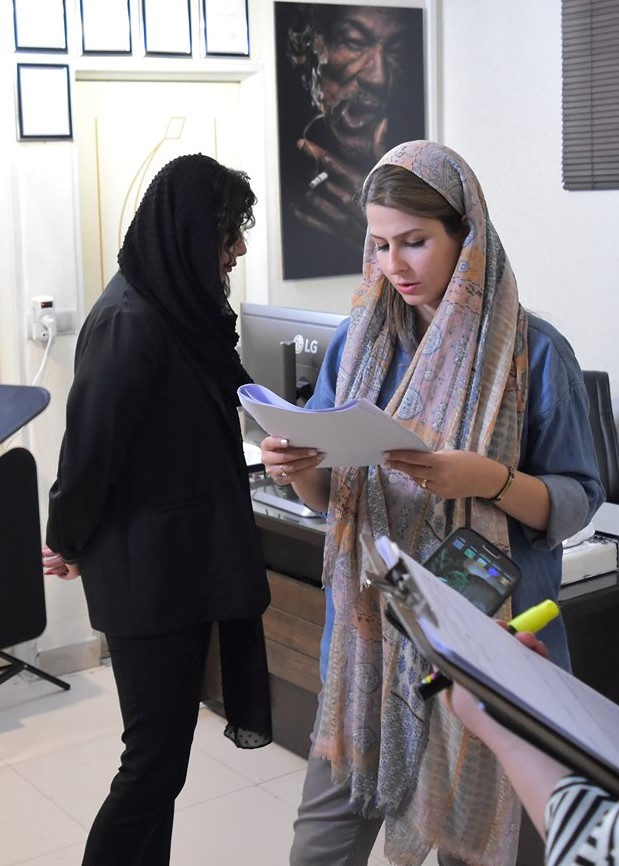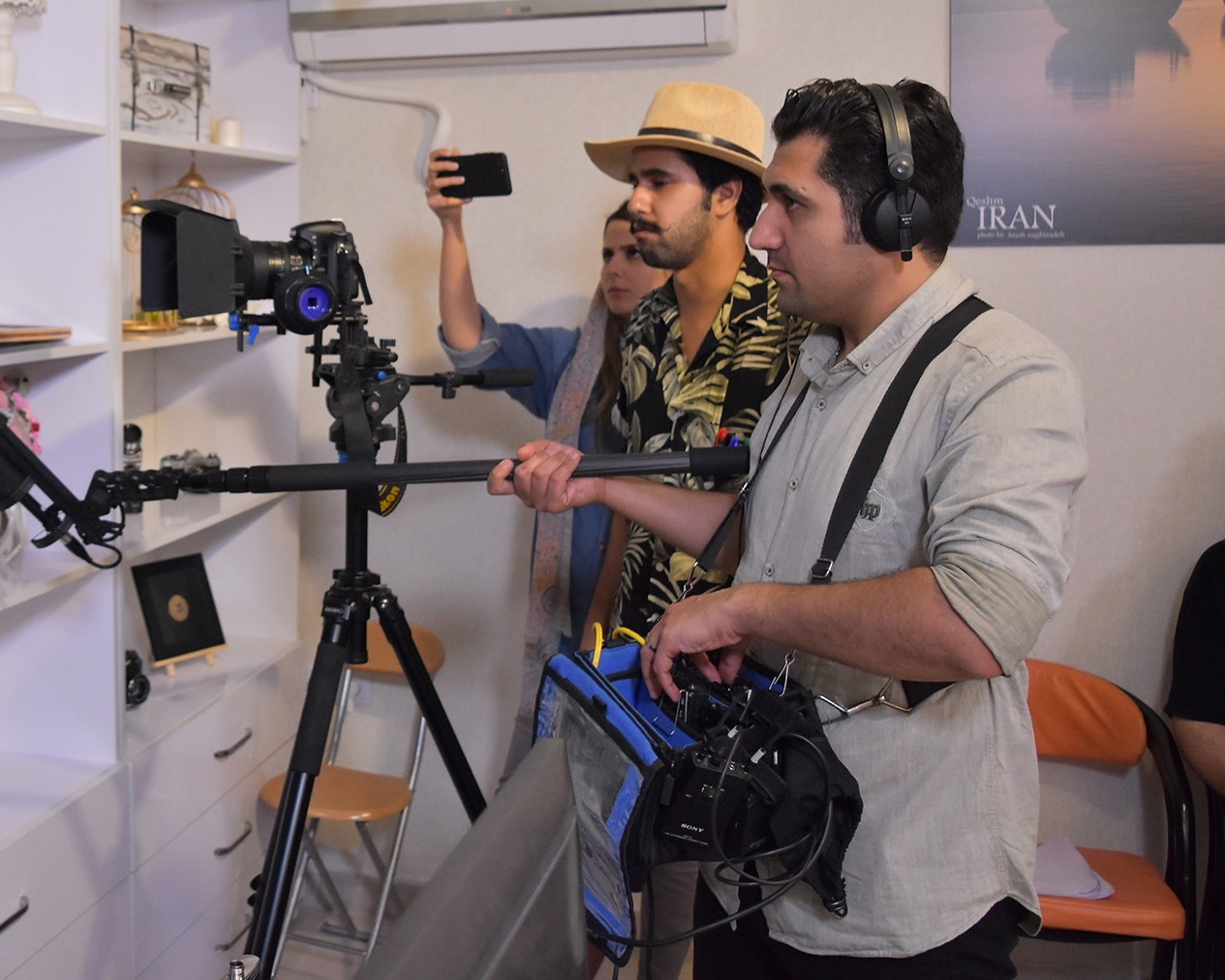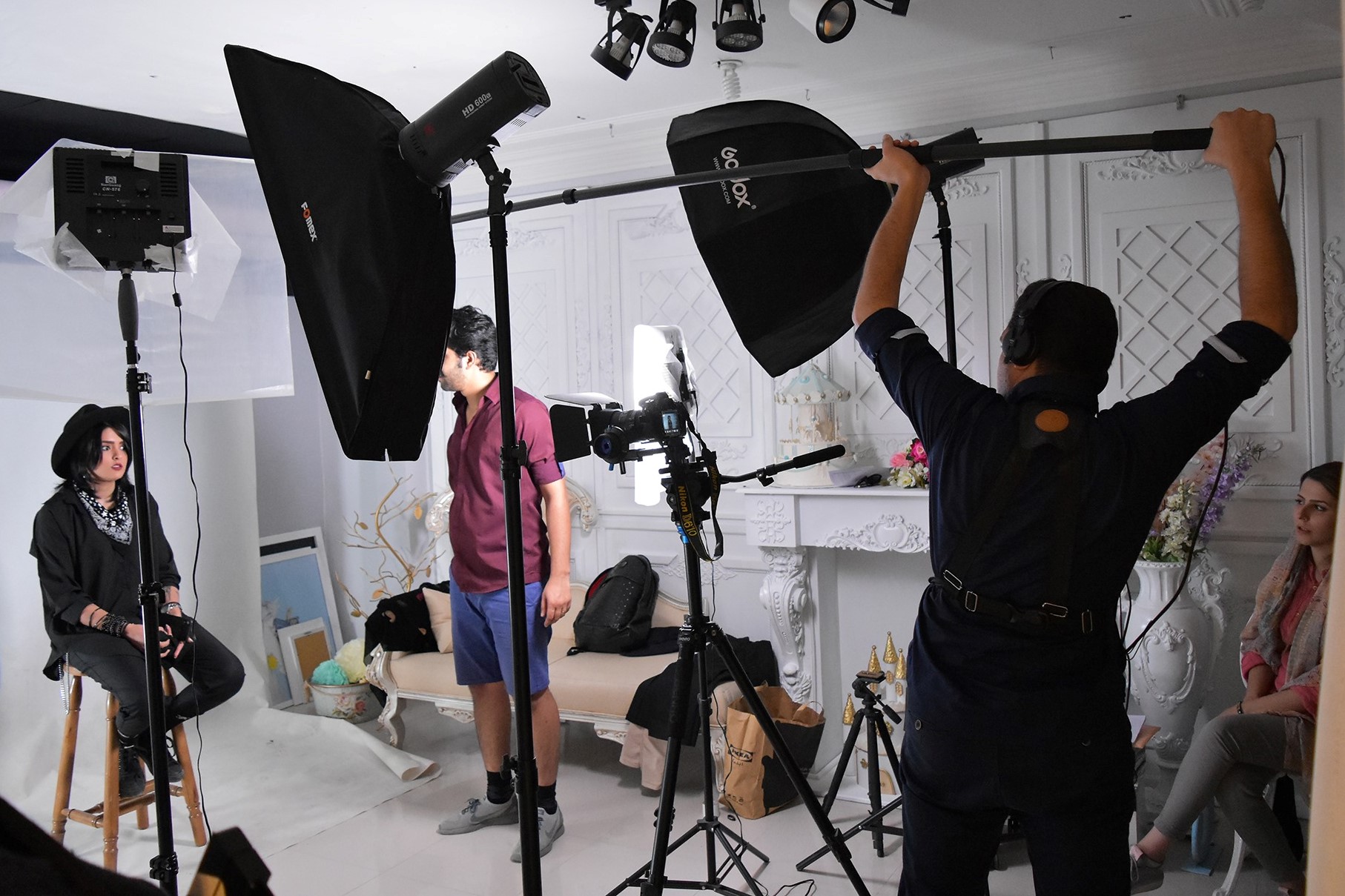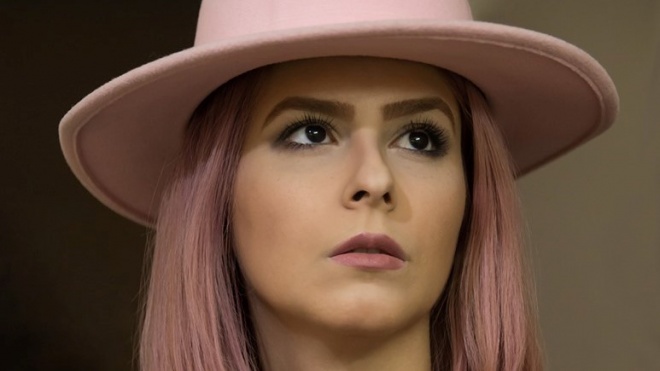Interview by Andreea Boyer // Edited by Chris Charles of Idol Features

Iranian filmmaker Hanieh Bavali had to overcome several obstacles while making her latest short film, The Passport. As a female filmmaker living in Iran, not only is she in an industry dominated by men, these days, funding film projects in her country is quite a challenge with the sanctions the US has imposed on Iran. However, Hanieh’s determination and vision overcame the challenges she faced while making The Passport, which she saw through to completion and has now been selected for top honors at several international film festivals.
Andreea Boyer: What can you tell us about yourself and where are you from?
Hanieh Bavali: I am Hanieh Bavali, an independent female filmmaker from Iran. I was born in 1990 in Abadan City. I graduated from the Iranian Youth Cinema Society and now I’m living in Tehran with my husband Ali Ramezani. He is also a filmmaker and photographer.
Andreea Boyer: What can you tell us about Filmmaking in your country? Is filmmaking there different?
Hanieh Bavali: As you probably know, there are several limitations for women in Iran. So, making a film is more difficult for a female filmmaker. You should give a lot of permits to filmmaking.
Andreea Boyer: Have you been working in the film industry mainly in your country or also somewhere else around the globe?
Hanieh Bavali: No, I’m an independent filmmaker and I have many limitations. I made my first short film with a low budget and I’m very interesting to have independent filmmaking experiences outside of Iran. I have made this film with my spouse, Ali Ramezani, and with help by our own personal expenses. Actually, this film has been made without any governmental support.
Andreea Boyer: How did you start your career as a filmmaker and what has your motivation and inspiration been?
Hanieh Bavali: I have always been concerned with social issues; equal rights humans, sexual minorities, and cinema is the best medium to epitomize my concerns. I have always been interested in Mohammad Shirvani’s artworks. He is an Iranian alternative filmmaker. Shirvani escaped from military service to make his first short film, The Circle in 1999. This film was selected for the Critics’ Week International Cannes festival in that same year. As of 2013, Shirvani has made 18 films; the last one, Fat Shaker, won the Golden Tiger for the best film in Rotterdam Film Festival, Cannes, Berlin, Sundance, Locarno, Toronto, Tribeca, and Busan. Although he could not screen them widely in his homeland. He has been encouraged by everyone to make a film, even with a DSLR camera. He inspired me to make films with low possibilities.
 Andreea Boyer: When did you start with your career as a filmmaker and has filmmaking always been your main focus?
Andreea Boyer: When did you start with your career as a filmmaker and has filmmaking always been your main focus?
Hanieh Bavali: I have always been a cinema lover and dreamed of making my own movies from childhood, but my family could never accept such a thing. It took years for my dreams to come true. With the encouragement of my husband, Ali Ramezani, I participated in the Iranian Youth Cinema Society and made The Passport as a personal film with the lowest budget possible.
Andreea Boyer: What can you tell us about the cast and story from your movie?
Hanieh Bavali: You may also know about the sanctions against Iran. The Iranian banking industry has been hit particularly hard. So I can not pay the entrance fees for the festival in a legal way. Iranian currency has been steadily losing its value against the dollar. For this reason, the past year was a terrible period of time in economic terms. This short film is about these problems indirectly. Most of Iranian young people are trying to leave Iran. They apply for asylum to other countries. They prefer the pain of homelessness instead of staying in Iran. This film is their voice.
All the cast at this film worked hard for this project without any pay, and Ali Ramezani has been produced The Passport, and also he had edited the film. Behshad Motie is a professional sound engineer who worked with us on this project. Saeed Nassari was the main actor and he makes a great effort for films. He is a talented actor despite suffering from Vitiligo. Mohammad Bamm is also a poet in his real life and never succeeded in publishing his poetry book in Iran. He was detained in Iran for some political reasons and bailed out and now lives in France. He is a true example of one who had to leave Iran. Negin Yahya Abadi is an actress who gave us a lot of positive energy.Without the effort of my cast, I certainly would not be able to make it.

Andreea Boyer: Where did you film your movie and why in that location?
Hanieh Bavali: The film was made in Abadan, Iran, because we lived in Abadan at the time of making the film. Because of the lack of funding, we weren’t able to make the film elsewhere, and all of the cast were native to the Abadan city. The whole film was filmed at the studio of my good friend Arash Naghizadeh. He also played a little role in a part of the film.
Andreea Boyer: What can you tell us about your other films and work?
Hanieh Bavali: I have a lot of ideas for filmmaking, and as you know, the successes of The Passport at many international festivals makes me determined. It continues my way through with a lot of hardships. My main problem right now is funding the production for the second film and removing the limitations of making specific scripts.
Andreea Boyer: What can you tell us about your best experiences and which moments in your career have been the most influential ones for you?
Hanieh Bavali: The best experience for me was my cast’s sympathy with me because they worked without any wages. This film has been reminded to one of my best friends Mohammad Bamm, who is an actor and a poet.
Andreea Boyer: What is your advice for all young independent filmmakers on how they should work on their goals and reach the best audience for their individual work?
Hanieh Bavali: I suggest to young filmmakers never be disappointed to make their good ideas. You can make your best film of your life with your cinephile friends. I made The Passport when I felt hopeless in my life, but everything proved me that you can make a good film and succeed. The Passport was my turning point in my life.
Thank you, Ms. Bavali. We wish you continued success.




